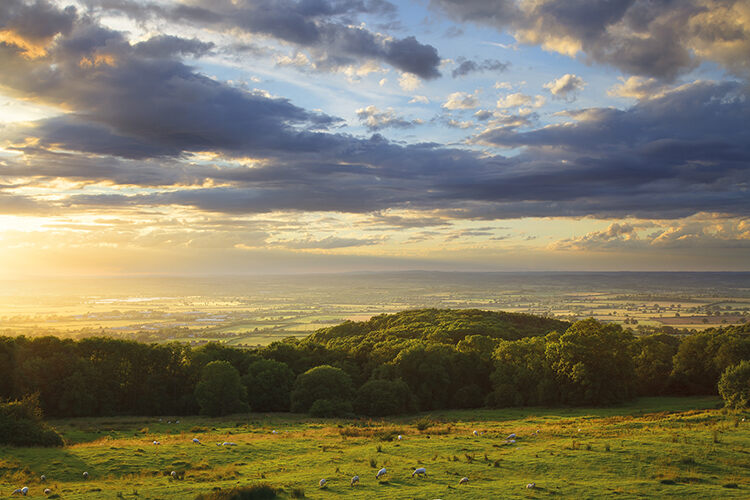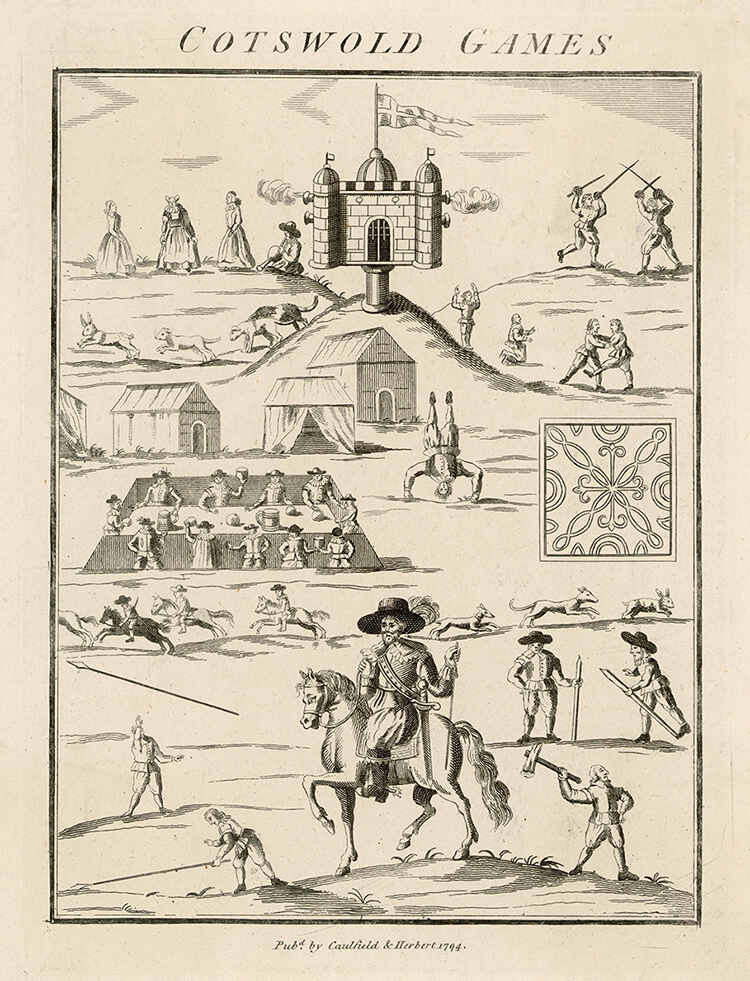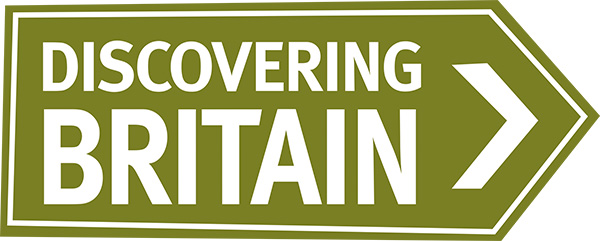
Rory Walsh visits an unusual British sports stadium home to the Cotswold Olympick
View • Rural • South West England • Guide
From the Gloucestershire market town of Chipping Campden, the Cotswold Way winds west for 164 kilometres to the Roman city of Bath. Its elevated route provides vast views across the surrounding countryside. At Dover’s Hill, 230 metres above sea level, the Vale of Evesham unfurls below in a patchwork of fields and woodland. In the foreground, the grassy slopes drop to a rippled lawn ringed with trees. This hillside arena is usually dotted with grazing sheep. In late May, however, something else appears: a wooden castle.

‘Dover Castle’ is the centrepiece of the Cotswold Olympick Games. On the Friday after the Spring Bank Holiday, up to 2,000 people gather at Dover’s Hill to watch various individual and team events, including static jumping, ‘spurning the barre’ (like the Scottish caber toss) and the World Shin Kicking Championships. Trophies are awarded to the winners and all competitors receive a medal. The games end at sunset, followed by fireworks.
Dover’s Hill is named after the games’ founder. Robert Dover was a local lawyer who devised ‘the Cotswold Olympicks’ in 1612 to promote outdoor activity and as a community event to unite the wealthy and working classes. After the English Civil Wars, the games were banned by the Puritans. They resumed in 1660 following the Restoration of King Charles II and continued until 1852, when Dover’s Hill was enclosed for farming. In 1965, volunteers formed Robert Dover’s Games Society, which has run the revived event ever since.
Discover more about Britain…
The games endure through the lie of the land. Dover’s Hill is a natural amphitheatre ideal for competitors and spectators alike. The Cotswolds span a scarp of Jurassic limestone – a steep ridge formed around 165 million years ago. Below the limestone are unstable layers of mudstone and sandy clay. Water percolating the porous limestone into these weaker soils makes the limestone slip and crack into blocks. At Dover’s Hill the soils slumped beneath the limestone slabs, creating a large hollow with springy grass and panoramic views.
During their successful bid to host the 2012 Olympics, the British Olympic Association described Robert Dover’s games as ‘the first stirrings of Britain’s Olympic beginnings’. The 2024 Olympics in Paris are due to see 10,500 athletes compete in 36 sports, including surfing and skateboarding. No shin kicking – but wherever the Olympics are held, part of their spirit can be traced to the geology of a Gloucestershire hillside.





